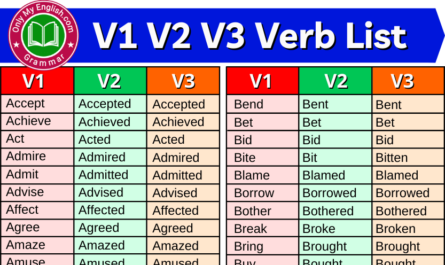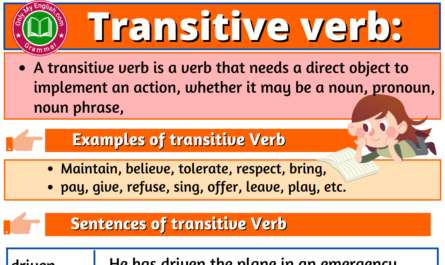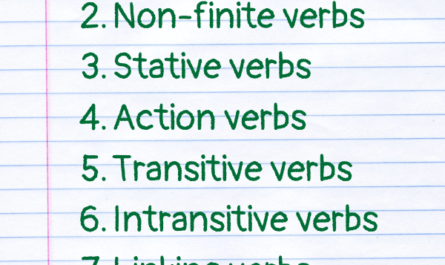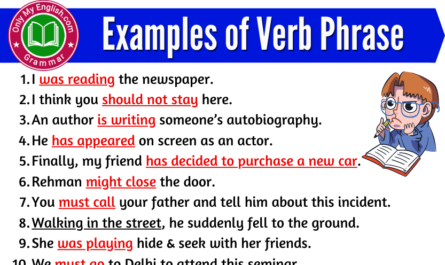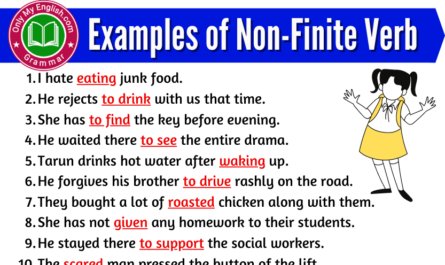Intransitive Verb
The verb in a sentence is called an intransitive verb, when it acts with an adverb, preposition, adjectives, or other parts of speech present in a sentence. Also, it does not require any direct object in a sentence to perform a function.
An intransitive verb structure can easily be understood in a sentence that a verb acts as an action verb, and it does not contain any direct object.
A prepositional phrase or an adverb can also be added after an intransitive verb to provide more information in a sentence.
An intransitive verb is either followed by a word or phrase, which answers the question of such word How?
For example,
Play, run, sleep, sneeze, continue, smile, arrive, happen, occur, walk, act, crawl, dance, fly, left, explode, peep, etc., are called intransitive verbs.
Note: A subject and an intransitive verb together can make a sentence.
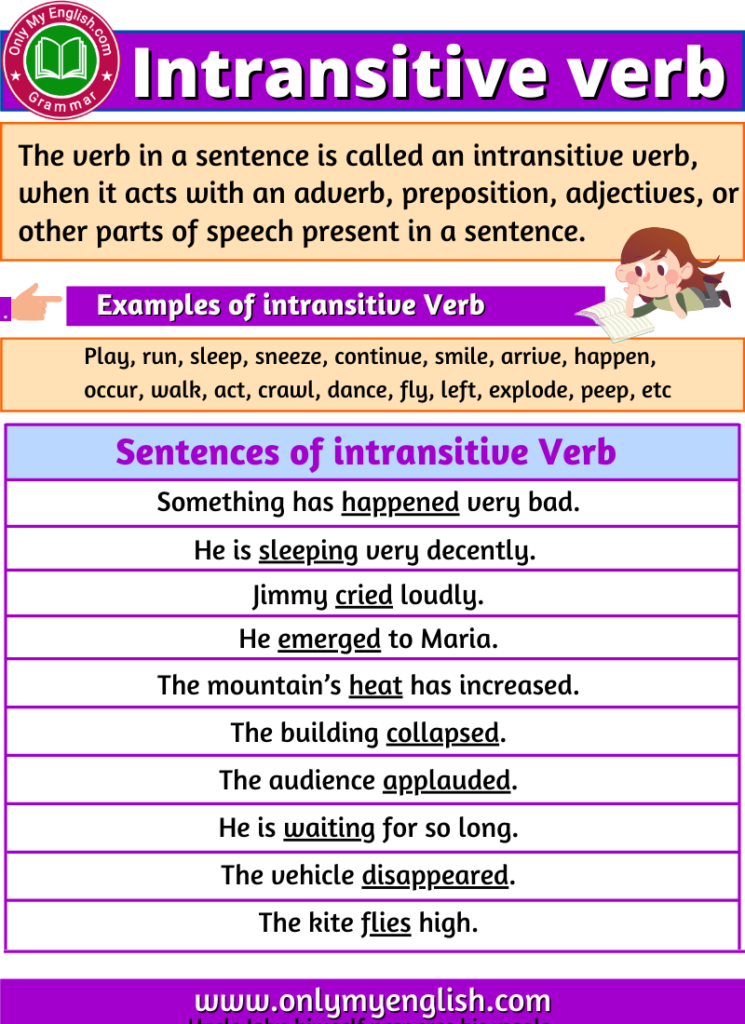
Examples of Transitive Verbs in Sentences
- He sneezes.
- She smiled.
- He plays.
- Suddenly he laughed so loudly.
- It’s snowing.
- Something has happened very bad.
- He is sleeping very decently.
- They perform well.
- Jimmy cried loudly.
- He emerged to Maria.
- The mountain’s heat has increased.
- The building collapsed.
- The audience applauded.
- She sneezes loudly.
- He is waiting for so long.
- The vehicle disappeared.
- The kite flies high.
- The conversation finished.
- Rehana went away.
- They jumped very high.
List of Transitive verbs
- Act
- Crawl
- Erupt
- Gallop
- Jump
- Lead
- Mourn
- Panic
- Pause
- Pose
- Pout
- Preen
- Leap
- Left
- Listen
- Expand
- Fade
- Fast
- Float
- Fall
- Explode
- Escape
- Limp
- Learn
- Lean
- Pray
- Pounce
- Peep
- Party
- Move
- March
- Kneel
- Grow
- Fly
- Dance
- Adapt
- Wade
- Slide
- Twist
- Skip
- Recline
- March
- Float
- Swing
- Sit
- Read
- Listen
- Fast
- Swim
- Fall
- Stand
- Shout
- Shake
- Yell
- Scream
- Sail
- Work
- Rush
- Rise
- Walk
